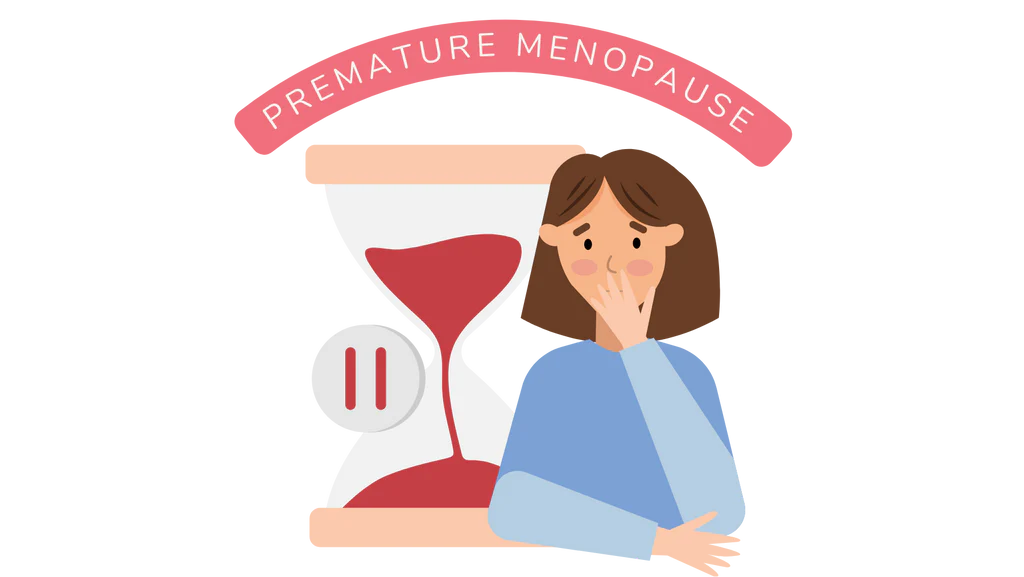Menopause is a natural biological process marking the end of a woman’s reproductive years. It typically occurs in women between the ages of 45 and 55. Understanding what happens during menopause can help manage symptoms and maintain overall health and well-being.
Table of Contents
Understanding Menopause
Menopause is defined as the point in time when a woman has not had a menstrual period for 12 consecutive months. It results from the gradual decline in the production of hormones, particularly estrogen and progesterone, by the ovaries.
Stages of Menopause
Perimenopause
Perimenopause is the transitional period leading up to menopause. It can last several years and is characterized by hormonal fluctuations. Symptoms of perimenopause can include:
- Irregular menstrual cycles
- Hot flashes
- Night sweats
- Mood swings
- Sleep disturbances
Menopause
Menopause itself is confirmed when a woman has not had a menstrual period for 12 months. The symptoms experienced during perimenopause may continue or intensify during this stage.
Postmenopause
Postmenopause refers to the years following menopause. During this stage, symptoms like hot flashes may decrease, but the risk of certain health conditions, such as osteoporosis and heart disease, increases due to the lower levels of estrogen.
Common Symptoms of Menopause
Hot Flashes
Hot flashes are sudden feelings of warmth, often accompanied by sweating and a rapid heartbeat. They can last from a few seconds to several minutes and are one of the most common symptoms of menopause.
Night Sweats
Night sweats are hot flashes that occur during sleep. They can disrupt sleep and contribute to insomnia and fatigue.
Mood Swings
Hormonal changes during menopause can lead to mood swings, irritability, and increased risk of depression and anxiety.
Sleep Disturbances
Many women experience difficulty sleeping during menopause. This can be due to night sweats, anxiety, or hormonal fluctuations.

Vaginal Dryness and Discomfort
Lower estrogen levels can cause vaginal dryness, itching, and discomfort during intercourse. This condition is known as vaginal atrophy or atrophic vaginitis.
Decreased Libido
Changes in hormone levels can lead to a decrease in sexual desire and arousal.
Urinary Issues
Menopause can cause urinary incontinence and an increased risk of urinary tract infections (UTIs).
Long-Term Health Effects of Menopause
Osteoporosis
Estrogen helps maintain bone density. After menopause, women are at an increased risk of osteoporosis, a condition characterized by weak and brittle bones.
Cardiovascular Health
Lower estrogen levels can increase the risk of cardiovascular disease. It is essential to maintain a heart-healthy lifestyle during and after menopause.
Weight Gain
Hormonal changes can contribute to weight gain, particularly around the abdomen. Maintaining a balanced diet and regular exercise can help manage weight.
YOU MAY ALSO READ: What is the Main Cause of Hemorrhoids?
Managing Menopause Symptoms
Hormone Replacement Therapy (HRT)
HRT involves taking estrogen and sometimes progesterone to relieve menopause symptoms. It can be effective for hot flashes, night sweats, and vaginal dryness, but it may have risks and side effects. Consult a healthcare provider to determine if HRT is appropriate.
Lifestyle Changes
Adopting a healthy lifestyle can help manage menopause symptoms and improve overall well-being:
- Physical activity can help maintain a healthy weight, improve mood, and strengthen bones.
- A diet rich in fruits, vegetables, whole grains, and lean proteins can support overall health.
- Drinking plenty of water can help manage hot flashes and prevent dehydration.
- Identify and avoid hot flash triggers, such as spicy foods, caffeine, and alcohol.
Alternative Therapies
Some women find relief from menopause symptoms through alternative therapies, such as:
- Black cohosh, soy, and flaxseed are commonly used to alleviate symptoms.
- This traditional Chinese medicine technique can help reduce hot flashes and improve sleep.
- These practices can reduce stress, improve mood, and promote relaxation.
Support Networks
Connecting with other women experiencing menopause can provide emotional support and valuable insights. Consider joining a support group or participating in online forums.
When to Seek Medical Advice?
If menopause symptoms are severe or significantly impact your quality of life, seek medical advice. A healthcare provider can offer personalized recommendations and treatments to manage symptoms effectively.
Conclusion.
Menopause is a natural phase of life that involves significant hormonal changes and various symptoms. Understanding what happens during menopause and adopting healthy lifestyle practices can help manage symptoms and maintain overall well-being. If you experience severe symptoms, consult a healthcare provider for personalized treatment options.


Leave a Comment